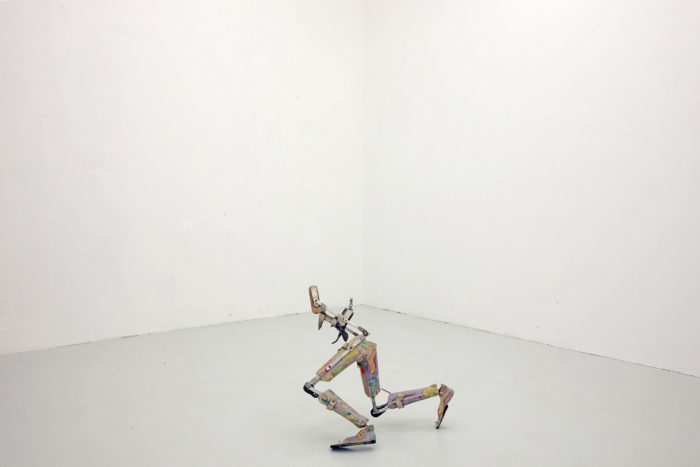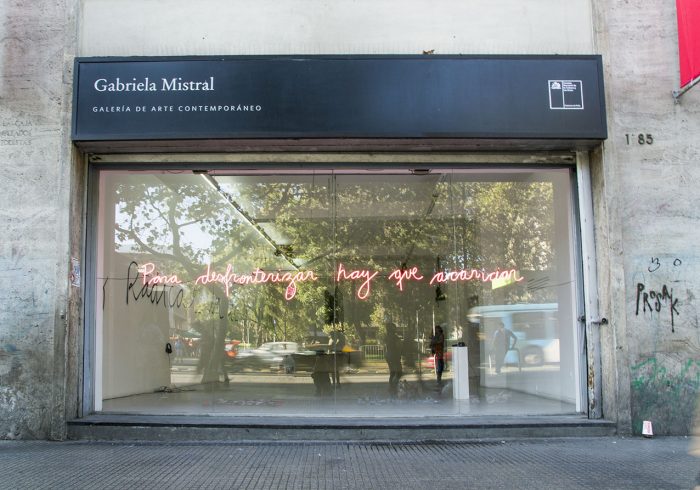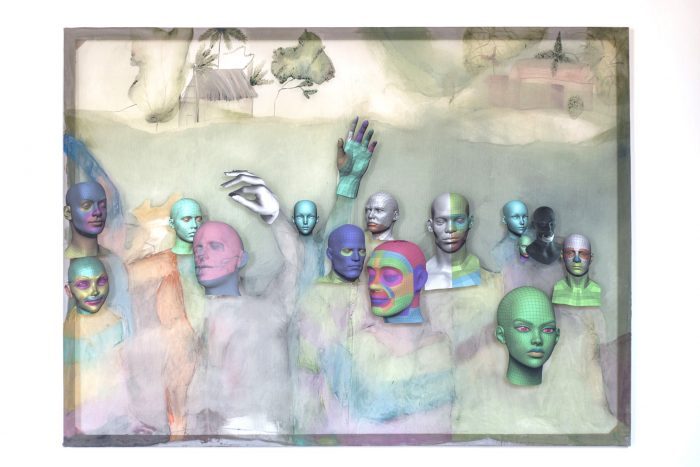
14.05.2020
Drawing from the present pandemic and the sociopolitical context that precedes and accompanies it, philosopher Achille Mbembe unfolds a reflection that traces a path of possibility to motivate a common political movement, nourished by the awareness of that planetary capacity—often taken for granted—that makes life possible.

There are some who are already speaking about the “post-Covid-19” era. Why shouldn’t they? Because for most of us—and especially those of us who live in parts of the world where the healthcare system has been undermined by years of organized neglect—the worst is yet to come. In the absence of hospital beds, respirators, broadly available testing, masks, alcohol-based disinfectants, and other needs in the face of the pandemic, unfortunately, many will not make it through the eye of the needle.
1.
It is one thing to worry about the death of others in faraway lands, but it is quite another to be suddenly confronted with the fact of one’s own mortality, to be forced to live intimately with one’s own death, contemplating it as an actual possibility. Such is the terror that confinement elicits for many: having to finally answer for one’s own life, for one’s own name.
To answer here and now for our life on this Earth with others (including viruses) and our shared destiny, that is the mandate that this pathogenic moment demands from humanity. It is a pathogenic moment, but also one that is quintessentially catabolic—a time of the decomposition of bodies, of the sorting and elimination of all manner of human waste—of the “great separation” and great confinement in response to the astonishing spread of the virus and a result of the digitization of the world.
Yet no matter how much we try to rid ourselves of it, in the end, everything brings us back to the body. We try to graft it onto other supports, to transform it into a body-object, a body-machine, a digital body, an ontophanic body. But it comes back to us in the stupefying form of an enormous maw, a vehicle of contamination, a vector of pollen, spores, and mold.
Knowing that we are not alone in this ordeal and that many will not be able to escape it, is little comfort. For we never really learned how to live with the rest of the species or how to truly care about the damage that we humans have caused to the Earth’s lungs and body. Indeed, we never really learned how to die. With the discovery of the New World and the appearance of the “industrialized races” a few centuries later, we essentially chose, in a sort of ontological vicariate, to delegate our death to others, making a great sacrificial meal of existence itself.
Covering over the cracks just won’t work anymore. In the depths of this crater, literally everything must be reinvented, starting with the social.
But soon it will no longer be possible to delegate one’s death to another, for they will no longer die in our place. Not only will we be condemned to assume our own death, unmediated, but there will be fewer and fewer opportunities to bid farewell. The hour of autophagy is upon us, and with it, the death of community, for there is no community worthy of its name in which bidding farewell—in other words, remembering the living—is no longer possible.
Community—or rather, that which we have in common—is not solely based on the possibility of saying good-bye—that is, on having a unique encounter with others and honoring that meeting over and over again. What we have in common is also based on the possibility of unconditional sharing, extracting each time something absolutely intrinsic, something unquantifiable, incalculable, and thus invaluable.

2.
There’s no doubt that the heavens are darkening. Caught up in the noose of injustice and inequality, much of humanity is threatened by great suffocation; the feeling that our world is paralyzed continues to spread.
If in these circumstances, there must be a day after, it cannot come at the expense of some— always the same ones—as in the Old Economy. This new day must necessarily be for all the inhabitants of the Earth, regardless of species, race, sex, nationality, religion, or any other differentiating trait. In other words, the day after can only come with a great rupture, the result of radical imagination.
Covering over the cracks just won’t work anymore. In the depths of this crater, literally everything must be reinvented, starting with the social. For when work, food-shopping, keeping up with the news, staying in touch, nurturing and preserving connections, talking and sharing, drinking together, and organizing funerals begin to occur only through the interface of the screens, it is time to recognize that we are surrounded on all sides by rings of fire. To a large extent, the digital is the new pit the explosion [of the revolution] has cut into the Earth’s surface. At once a trench, a tunnel, a lunar landscape, it is the bunker where people in isolation are invited to take cover.
They say that through the digital, the body of flesh and bones, the physical and mortal body, will be freed from its weight and inertia. At the end of this transfiguration, it will eventually be able to pass through the looking glass, purged of all biological corruption, and restored to the synthetic universe of flux. However, this is an illusion; for just as there can be no humanity without bodies, humanity will not know freedom alone, outside of society, or at the expense of the biosphere.
3.
We must then start from scratch if, for the purposes of our own survival, it is imperative that every living thing (and this includes the biosphere) be given back the space and the energy it needs to live. On its dark side, modernity has waged an endless war against life. And it is far from over. One of the primary modes of this war, leading directly to the impoverishment of the world and the drying up of entire swathes of the planet, is the subjugation to the digital.
At once untethered to Earth and our common ground, the universal right to breathe is not quantifiable and cannot be appropriated. It is a universal right not only of every human being but of all living things as a whole.
There is a danger that, on the other side of this calamity, rather than offering refuge to all living species, the world will enter a new period of tension and brutality.[1] In terms of geopolitics, the logic of power and force will continue to dominate. For lack of a common infrastructure, the vicious partitioning of the planet will intensify and the dividing lines will become even more deeply entrenched. Many states will seek to strengthen their borders in hopes of protecting themselves from the outside world. They will also seek to hide the constitutive violence that they will routinely direct against the most vulnerable. Life behind screens and in gated communities protected by private security companies will become the norm.
In Africa in particular, but in many other places in the Global South as well, intensive energy extraction, agricultural expansion, and predation will inevitably continue against a backdrop of uncontrolled land sale and the destruction of forests. Up to date, the functioning of computer chips and supercomputers depends on it. The supply and distribution of the resources and energy needed to support the global information infrastructure will demand further restrictions on human mobility. Keeping the world at a distance in the name of keeping out any kind of risk will become the norm. But because it does not address our ecological precarity, this catabolic vision of the world, inspired by theories of immunization and contagion, will do little to interrupt the planetary impasse in which we find ourselves.

4.
All these wars begin by taking our breath away. In so far as it constitutes a major obstacle to breathing and the resuscitation of human bodies and tissues, Covid-19 partakes in the same trajectory. After all, what is the purpose of breathing if not the absorption of oxygen and the release of carbon dioxide, or better said, the dynamic exchange between blood and tissues? But at the rate life on Earth is going, and given how little is left of the planet’s wealth, how far are we really from the time when there will be more carbon dioxide than oxygen to breathe?
Before this virus, humanity was already threatened with suffocation. If there must be war, it cannot be against a single virus but must address all that condemns the majority of humanity to the premature loss of breath: everything that fundamentally attacks the respiratory tract, everything that, throughout the long reign of capitalism, has consigned entire segments of the world’s population, entire races, to a life of difficult and gasping breath, a life of oppression. But breaking free of this constriction would require that we conceive of respiration beyond its purely biological aspect as that which is common to all of us and which, by definition, manages to avoid all quantification. By this, I mean the universal right to breathe.
At once untethered to Earth and our common ground, the universal right to breathe is not quantifiable and cannot be appropriated. It is a universal right not only of every human being but of all living things as a whole. It must, therefore, be understood as a fundamental right of existence that consequently can never be subjected to confiscation. It eschews all sovereignty since it recapitulates the sovereign principle par excellence in itself. Moreover, it is an inherent right of inhabiting Earth, a right that belongs to the universal community of earthly inhabitants, human and other.[2]

Coda
The case has been tried already a thousand times. We can recite the principal charges with our eyes closed. From the destruction of the biosphere to the corralling of minds through technoscience, the criminalization of resistance, the repeated attacks on reason, generalized cretinization, and the emergence of determinisms—genetic, neural, biological, environmental—the dangers facing humanity are increasingly existential.
Of all these, the greatest danger is that a big part of life forms will be rendered impossible. There is little difference between those who dream of uploading our consciousness to machines and those who are sure that the next mutation of our species will free us from our biological shell. The temptation of eugenics has not disappeared. On the contrary, it lies at the root of the most recent scientific and technological advances.
At this juncture there comes a sudden halt, an interruption not of history but of something that still eludes us. Since it was imposed upon us, this cessation does not derive from our will. In many ways, it is both unforeseen and unpredictable. What we need, however, is a voluntary interruption, one that is conscious and fully consensual. For without it there will be no tomorrow. Without it, there will be no more than an endless series of unforeseen events.
If indeed, Covid-19 is the spectacular expression of the cosmic impasse in which humanity finds itself today, then it is a matter of reconstructing a habitable planet that can offer us the means to breathe. We must reclaim the resources of our planet with the intent of creating new lands. Humanity and the biosphere as one. Neither has a future without the other. Will we be capable of rediscovering that each of us belongs to the same species and that we are inexorably linked to all life? Perhaps that is the question—the last—before our final dying breath.
—-
This text was originally published in French in AOC as part of their Opinion section on April 6, 2020. It was translated into Spanish and English for its publication in Terremoto with the author’s permission.
Translated to English by Irene Trejo, copy-edited by Chloe Wilcox.
Looking back to the term’s origins as a mid-twentieth-century architectural movement, I have defined brutalism here as a contemporary process by which “power constitutes, expresses, reconfigures, acts, and reproduces itself as a geomorphic force.” How does it do so? Through processes that include “fractur[ing] and cracking,” the “emptying of vessels,” “perforation,” and the “expulsion of organic matter,” in a word, what I call “exhaustion.” Achille Mbembe, Brutalisme (Paris: La Découverte, 2020), p. 9 – 11.
See Sarah Vanuxem, La propriété de la Terre (Paris: Éditions Wildproject, 2018); and Marin Schaffner, Un sol commun: lutter, habiter, penser (Paris: Éditions Wildproject, 2019)
Comments
There are no coments available.